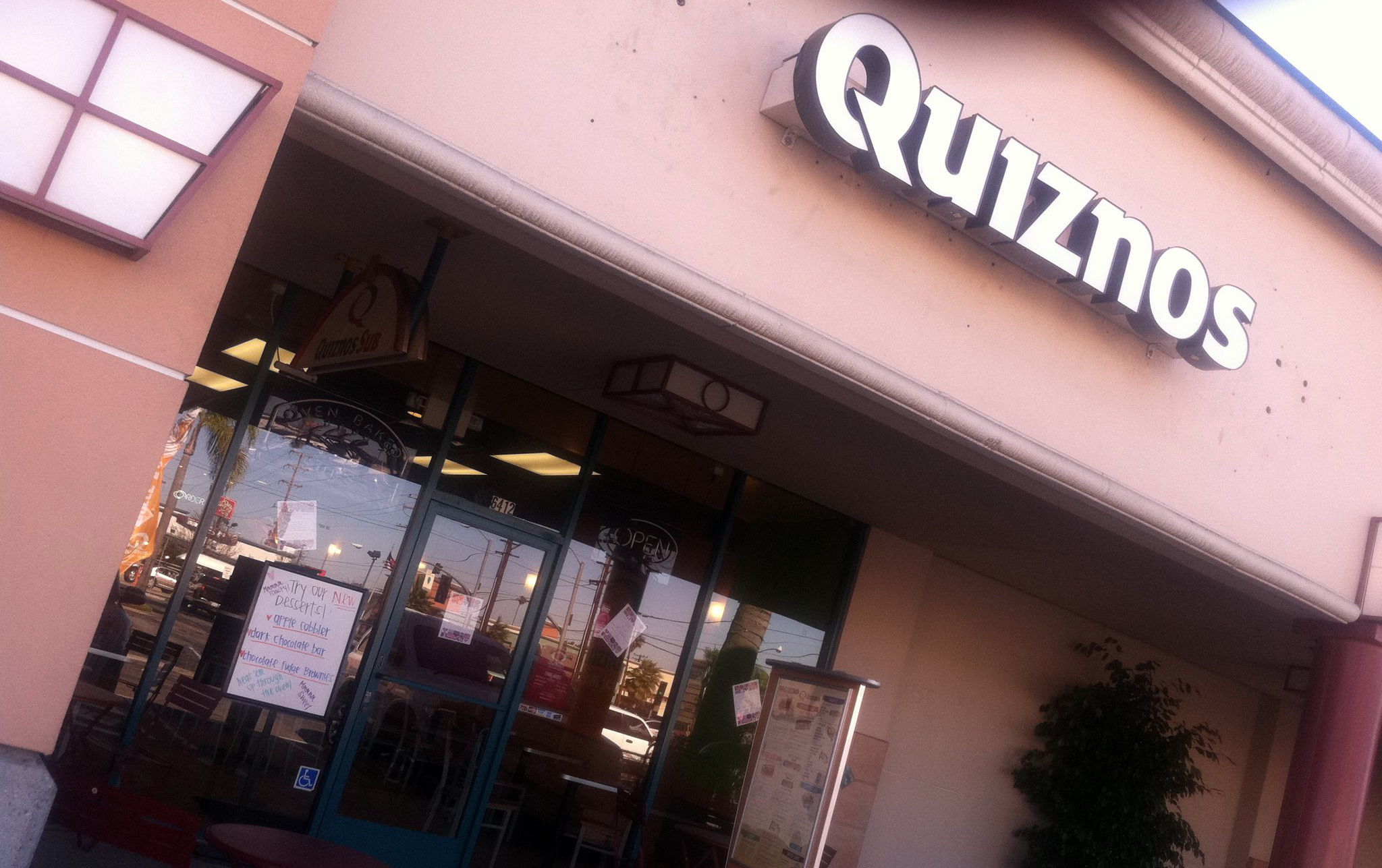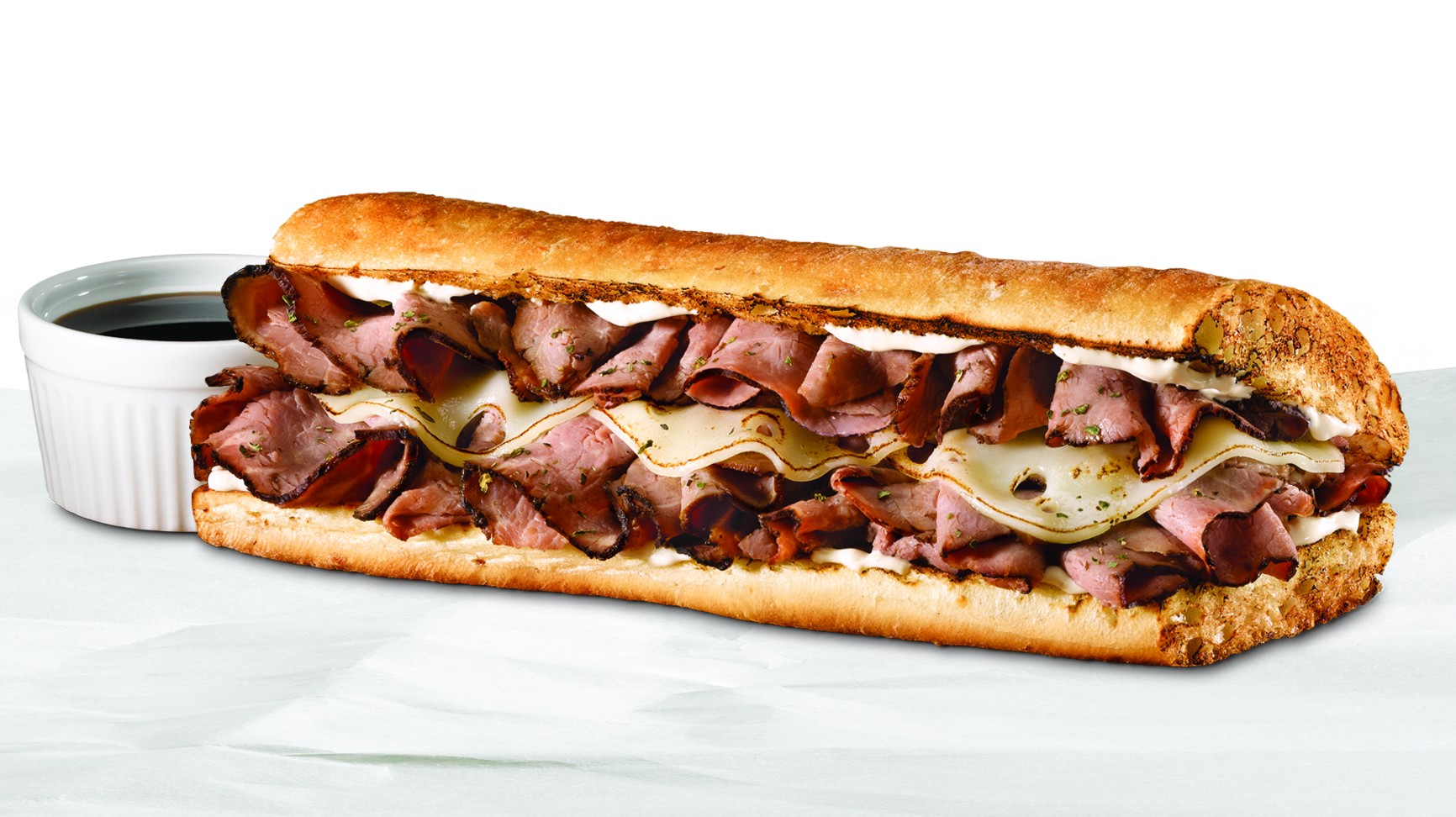
The former Quiznos on Spring St. in Long Beach
When Quiznos filed for Chapter 11 bankruptcy in a Delaware court on March 14, most of the business-news chatter surrounding the move linked it with similar ones made recently by other fast food chains like Sbarro and Hot Dog on a Stick.
But behind Quiznos’ claims that the poor economy and increased competition forced the Denver-based company to seek protection from its creditors, lie deeper financial issues that have been plaguing the “mmm-mmm toasty” brand for the last seven years, ever since a Long Beach franchisee committed suicide amid legal battles with the firm.
In 1998, Bhupinder “Bob” Baber drained his life savings to open and sustain two Quiznos in Long Beach, including one on Stearns St. near Bellflower Blvd. When the company allowed another Quiznos to open nearby in 2004 (against what he said was originally promised) and Baber’s sales dropped, he claimed that he was unable to get help from the company.
By the end of 2004, Baber had formed the Quiznos Franchisee Association, a group for California franchisees to commiserate and hopefully bring changes to what was felt by some franchisees as unfair practices in the company.
Quiznos responded by terminating both of his franchises, citing customer complaints and failed corporate inspections. Baber felt his cancellation was retaliation for forming his group and responded with his own litigation, which resulted in more than a year of suits and countersuits that drained the franchisee of more than $100,000 in legal fees.
In October 2005, it was ruled that Baber’s claims would be arbitrated in Denver (as his contract demanded), but Baber feared that traveling would cost him his job and whatever money he had left. A month later, Baber walked into the bathroom at his friend’s Quiznos in Whitter and shot himself in the chest.
His suicide note—which calls for an investigation into what he calls Quiznos’ “criminal” activities—was subsequently posted online by other franchisee organizations, members of which also expressed feeling trapped by the company’s pricing and increasing royalty fees.
{loadposition latestbusiness}
After Baber’s note was made public, a half-dozen class action lawsuits were filed against Quiznos by angry franchisees, including ones in Michigan, Wisconsin, New Jersey and Illinois. According to the company’s own 2013 Franchise Disclosure Document, those class action suits have all been settled, but in 2012 alone, 14 more individual suits were filed by current and former franchisees.
All of the lawsuits allege claims similar to those asserted in the previously settled class actions, including that the defendants “engaged in fraudulent schemes to sell mandated essential goods at inflated prices and to sell franchise agreements, abusive couponing and discounting programs, and unlawful control over franchisees through a pattern of racketeering activity.”
Whether the allegations are true or not, the affect the claims had on the number of current and potential franchisees is hard to deny.
At the height of Quiznos’ popularity in 2006, there were more than 5000 stores in 50 states and 34 countries. Today, the company claims only 2100 stores. Comparisons between 2004 and 2013 franchise lists show that Long Beach once has as many as 12 Quiznos in city limits. Only one remains.
 March 14’s bankruptcy filing is another indication of the company’s ongoing financial woes, though Quiznos’ senior leadership already secured a pre-packaged restructuring plan that will reduce their debt by $400M while ensuring franchise stores remain open and are not affected.
March 14’s bankruptcy filing is another indication of the company’s ongoing financial woes, though Quiznos’ senior leadership already secured a pre-packaged restructuring plan that will reduce their debt by $400M while ensuring franchise stores remain open and are not affected.
In filing paperwork, however, the company says it currently has $626M in outstanding debts, which comes just two years after the company underwent another financial restructuring, this one out of court, which eliminated about $300M in debt and, according to Bloomberg, gave majority ownership to billionaire Marc Lasry’s Avenue Capital Group LLC through a $150 million equity infusion and debt-to-equity swap.
Eight years after Baber’s suicide, the Long Beach franchisee’s fight for change at Quiznos may finally be seeing results. In a statement announcing the bankruptcy, Quiznos CEO Stuart Mathis said the restructuring will allow the company to follow through on its new business plan which puts more support into its franchisees.
“The actions we are taking are intended to enable Quiznos to reduce our debt, execute a comprehensive plan to further enhance the customer experience, elevate the profile of the brand and help increase sales and profits for our franchise owners,” Mathis said. “Our business plan includes several key elements aimed at supporting our franchisees, including reducing food costs, implementing a franchise owner rebate program, in certain circumstances making loans available to franchisees for restaurant improvements, investing in advertising to improve location awareness, and providing new incentives for prospective franchisees.”

